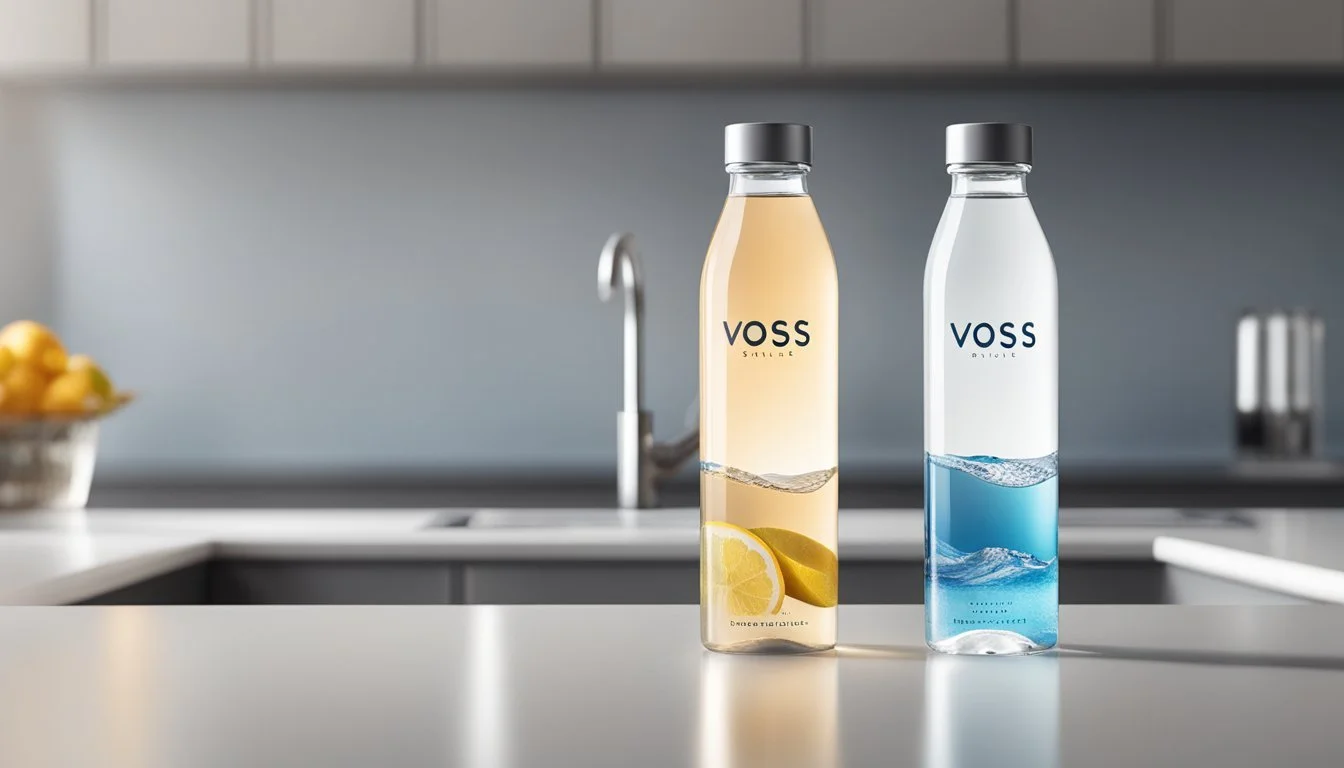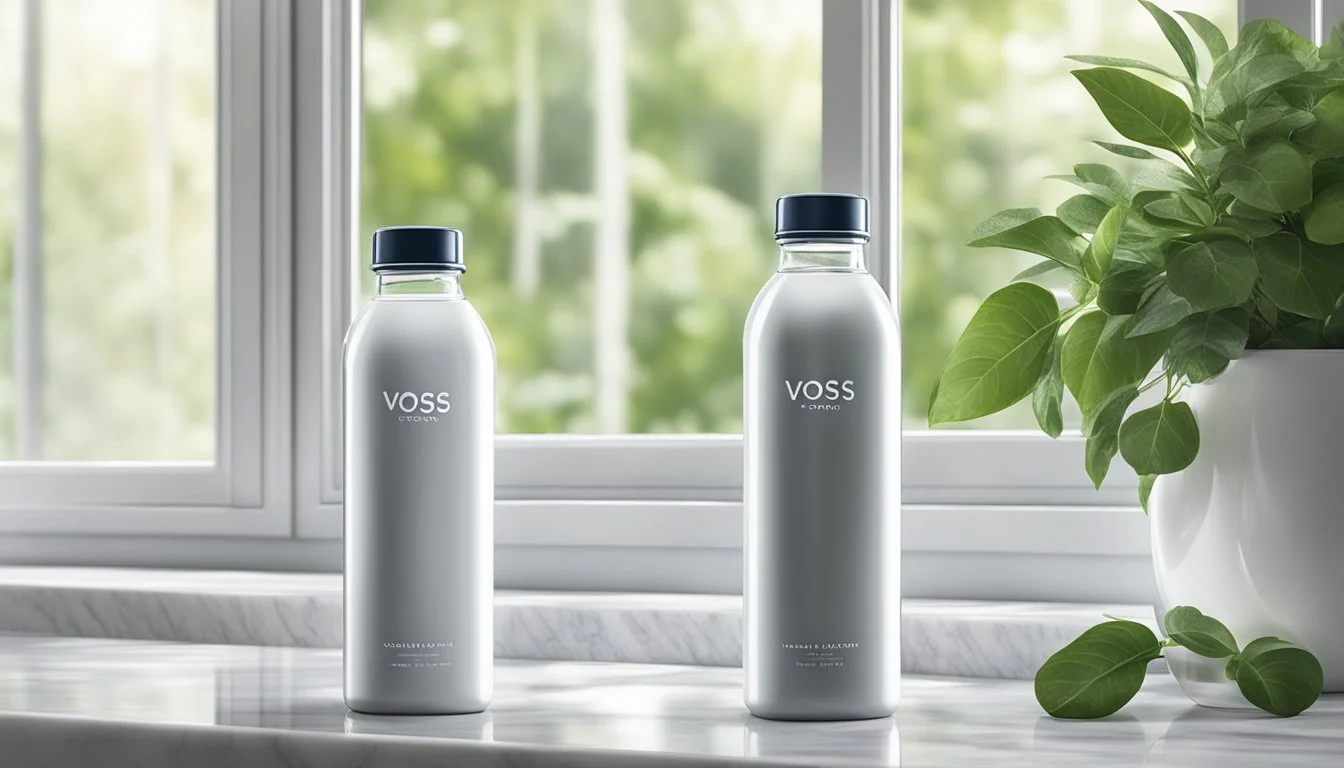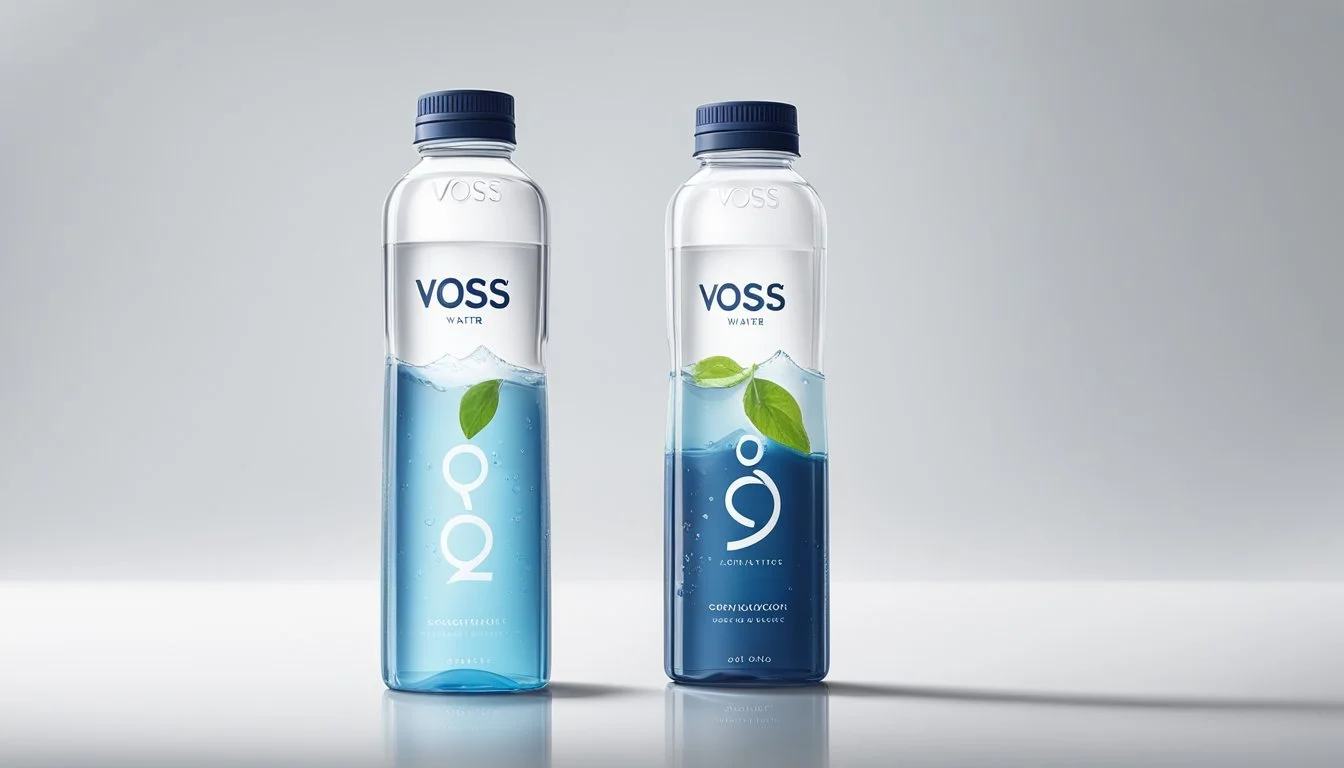Essentia vs. Voss Water Comparison
Unveiling the Superior Hydration Choice
When it comes to choosing bottled water, consumers face a market flooded with options, each claiming various health benefits, purity levels, and superior taste. Two notable contenders in the premium bottled water segment are Essentia and Voss. Essentia touts water with a high pH of 9.5, processed through microfiltration and ionization, aiming to deliver a smooth and clean taste. They highlight the absence of acidity and market their product as beneficial for those seeking alkaline diets.
Voss, on the other hand, has positioned itself as synonymous with luxury, originating from Norway and presenting water in distinct, cylindrical bottles that have become a status symbol in high-end restaurants and hotels. Voss emphasizes the purity and freshness of their artesian water, sourced from an underground aquifer protected from pollutants, which they claim results in a crisp taste and a feel of sophistication.
While Essentia focuses on the health-oriented aspects of its alkaline water, and Voss boasts about the source and presentation of its product, consumers often wonder which water provides a better drinking experience. The choice between Essentia and Voss may come down to individual priorities, be it the potential health benefits of higher pH levels or the pristine origins and branding of a luxurious product.
An Overview of Bottled Water Brands
The bottled water market includes a multitude of brands, each with unique selling propositions regarding water quality, origin, and taste. This section unpacks the diversity of brands, evaluates water quality parameters, and observes current market trends and demand signals.
Diverse Range of Brands
The bottled water industry hosts a vast array of brands, each vying for consumer attention. Notable names include Fiji, Voss, Evian, Dasani, Aquafina, and SmartWater. Companies like Nestlé and Coca-Cola have also established a strong foothold in the market with their respective bottled water products.
Assessing Water Quality
Quality assessment among these brands often focuses on factors such as pH balance, mineral content, and purification processes. For example, Essentia touts water with a high pH of 9.5, while Voss is known for its low-mineral content and purity. Comparatively, brands like Dasani and Aquafina are purified through reverse osmosis, stripping them of minerals and resulting in a clean taste.
Market Trends and Demand
Consumer preferences and market demand illustrate a shift towards premium bottled waters. Brands that offer alkaline water or originate from specific natural sources tend to gather more interest. The popularity of Essentia, stemming from its high pH water, exemplifies this trend, indicating that consumers are increasingly searching for added health benefits or distinct taste profiles within bottled water offerings.
Understanding Water Sources
Essentia and Voss waters each boast purity and quality, stemming from their distinctive sources and filtration methods. The origin of water plays a crucial role in taste, mineral content, and overall quality, which is why it is important to examine these factors.
Natural Spring Versus Artesian Water
Natural Spring Water refers to water that flows to the surface from a natural underground aquifer. Brands like Ice Mountain and Arrowhead are known for sourcing their water from various spring sources across the United States. These springs are typically recharged by natural processes like rain and snow.
Natural Spring Water:
Source: Natural underground springs
Example brands: Ice Mountain Natural Spring Water, Arrowhead Mountain Spring Water
Artesian Water, in contrast, comes from a well that taps into a confined aquifer containing water under pressure. This type of water, seen with Fiji Natural Artesian Water, is often deeper and more protected from the environment than water from a spring.
Artesian Water:
Source: Confined aquifer under pressure
Example brand: Fiji Natural Artesian Water
Purification Process of Different Brands
The purification process varies by brand and is pivotal in contributing to the safety and flavor profile of the bottled water.
Essentia Water utilizes a proprietary ionization process to remove impurities and enhance the water with electrolytes, offering a pH of 9.5 or higher. It typically starts as municipal water before undergoing this thorough purification and enhancement.
Voss Water, on the other hand, is renowned for its minimal handling and lack of extensive purification, relying on the natural filtration of its source—the artesian aquifer in Norway—to maintain its purity.
To summarize, Essentia focuses on transforming its source water through sophisticated purification techniques, while Voss emphasizes minimal intervention, allowing the natural quality of its artesian source to stand out.
Chemical Composition of Water
The chemical composition of water, particularly in the context of bottled brands like Essentia and Voss, is pivotal in determining its quality and benefits. Factors such as pH levels, mineral content, and the presence of electrolytes define the health impact and taste of the water.
pH Levels and Alkalinity
Essentia:
pH Level: 9.5
Type: Ionized alkaline water
Voss:
pH Level: Varies; typically around neutral (7)
Essentia water is known for its high pH level, which is a result of the ionization process it undergoes. This process not only increases the pH but creates ionized alkaline water. On the other hand, Voss water generally maintains a neutral pH level, which is closer to the pH level of pure water.
Mineral Content and Electrolytes
Essentia:
Minerals & Electrolytes: Enhanced with electrolytes for taste
Benefits: Claims improved hydration
Voss:
Minerals: Naturally occurring
Benefits: Contains minerals such as calcium and magnesium
In terms of mineral content, Voss water sources its essence from the natural environment, which includes minerals and electrolytes necessary for body functions. Essentia water is artificially enhanced with additional electrolytes, aiming to facilitate better hydration and a clean taste. The presence of minerals like calcium and magnesium is a significant aspect when evaluating the nutritional value and overall benefit of the water.
Health and Hydration
In the arena of bottled water, both hydration and consumption safety are paramount. Essentia and Voss, as leading brands, address these needs with their unique processing methods and maintain compliance with regulatory standards.
Hydration Benefits of Bottled Water
Essentia boasts water with a high pH of 9.5, which they claim enhances hydration by providing a water with less acidity. Their water is ionized, meaning that the pH level is adjusted through an electrolysis process. Voss, on the other hand, captures its water from a Norwegian aquifer, giving it a pure and fresh taste that indicates high quality. While Voss emphasizes the purity, Essentia stresses the hydration benefits linked to its higher pH levels.
Essentia:
High pH: Claims better hydrating effects.
Ionized: Undergoes electrolysis to adjust pH.
Voss:
Norwegian aquifer: Natural purity.
Fresh taste: Often associated with high-quality water.
Safety and Regulatory Considerations
Bottled water brands like Essentia and Voss need to ensure that their products are safe for consumption. They are regulated by the Environmental Protection Agency (EPA) in the United States, which mandates strict standards for drinking water. Both brands fulfill these standards, ensuring that their bottled water is safe and healthy to drink.
Essentia uses a purification process that removes impurities and then infuses the water with electrolytes after ionizing it. Voss ensures safety by sourcing water from a shielded aquifer and bottling it without further need for purification, relying on the natural filtration of its environment.
Essentia:
Purification process: Removes contaminants.
Electrolytes added: Post-ionization for enhanced taste and hydration.
Voss:
Natural aquifer: Minimally touched for purity.
No further purification: Relies on source purity for safety.
Taste Profile Comparison
In the realm of premium bottled water, the taste is a decisive factor for consumers. Essentia and Voss represent two brands vying for the top spot in the preferred taste category, each with its own distinct flavor profile that appeals to different segments of water drinkers.
Essentia vs. Voss
Essentia Water prides itself on its unique ionization process, which not only purifies but also includes electrolytes for taste and a higher pH allegedly to help with hydration. Consumers often report the taste of Essentia to be smooth and clean with a noticeable difference when compared to standard purified waters.
On the other side, Voss emerges from Norway with a remarkably pure and crisp flavor profile. Often bottled in glass to maintain its freshness, Voss aims to preserve the natural taste of its Artesian source. Its taste is described by enthusiasts as refined and neutral, without the heavy processing flavor that some purified waters might carry.
Consumer Perceptions of Taste
Consumer reactions to these two brands often emphasize the smoothness of Essentia and the crispness of Voss.
Essentia:
Positive: Many consumers enjoy the smoothness and find it refreshing, especially after physical activity.
Negative: Some might find the taste to be too distinct from traditional water, which can be less appealing for those preferring a more natural taste.
Voss:
Positive: Avid Voss drinkers appreciate its neutrality, which makes it widely versatile for pairing with meals or enjoying on its own.
Negative: The price point and minimal taste difference from other less expensive bottled waters can be a detractor for some consumers.
Ultimately, the choice between Essentia and Voss boils down to individual preferences in water taste and flavor profile, as well as the specific occasions for drinking water. Some may opt for the electrolyte-infused, higher pH water offered by Essentia, while others might prefer the minimalist, pure water taste from Voss.
Environmental Impact and Consumer Convenience
When assessing the merits of Essentia and VOSS bottled waters, consumers often weigh environmental impact alongside convenience. These factors greatly influence purchasing decisions, reflecting a balance between ecological responsibility and practicality in usage.
Packaging and Sustainability
Essentia typically utilizes plastic bottles, which are lightweight and user-friendly but contribute to environmental concerns due to the production and disposal processes involved. They assert that their bottles are 100% recyclable and are made with PET-1 plastic, the most widely accepted plastic for recycling. However, the life cycle of a plastic bottle still demands significant energy and can result in ecological damage if not properly recycled.
On the other hand, VOSS is well-known for their iconic glass bottles that are marketed as a more upscale, and by extension, more environmentally-friendly option. Glass can be recycled endlessly without loss of purity or quality, making it a sustainable choice. Yet, the increased weight of glass in transportation results in a larger carbon footprint when compared to plastic. Some VOSS products are also available in high-grade PET bottles designed for greater recyclability.
Bottle Material Pros Cons Plastic (Essentia) Lightweight, shatter-resistant, recyclable Energy-intensive, environmental pollution if not recycled Glass (VOSS) Highly recyclable, minimal chemical leeching Heavy, higher transportation emissions
Convenience Factors for Consumers
When consumers consider convenience, they often look at the ease of carrying and storing the product. Essentia's plastic bottles are convenient for on-the-go hydration, easily fitting into car cup holders, gym bags, and refrigerators. Their widespread availability and competitive pricing make them a practical choice for everyday use. In contrast, the glass bottles from VOSS may be less practical outside of home or upscale settings due to their weight and fragility.
Moreover, with growing demand for more ecological options, alternatives such as boxed water present themselves. Though neither Essentia nor VOSS currently offers boxed water, consumers may use a Brita filter as an at-home filtering solution, reducing the need for single-use bottles entirely.
Convenience Factor Essentia VOSS Portability High Low Accessibility High Moderate Cost Moderate High Storage Easy Moderate due to shape and fragility
Both brands aim to address consumer needs, but personal preferences on environmental impact and the practical aspects of usage vary, shaping the decision on which water brand aligns better with individual values and lifestyles.
Comparative Analysis of Essentia and Voss
In the competitive landscape of bottled water, Essentia and Voss stand out as premium brands with distinct qualities. This section carefully examines the reputations, histories, and quality of these two heavyweight contenders in the bottled water market.
Brand Reputation and History
Essentia is renowned for its ionized alkaline water which it claims is supercharged to deliver better hydration. Founded in 1998, Essentia has positioned itself as a leader in the development of alkaline water aimed at promoting health and wellness. The brand boasts a strong reputation for its advanced purification process and the infusion of electrolytes for taste.
Voss, on the other hand, hails from Southern Norway and brings forth the allure of purity and natural simplicity with its source being naturally protected from pollutants. Since its launch in 2001, Voss has focused on the premium market, packaging its water in sleek glass bottles that reflect the premium image they uphold.
Quality Comparison
Essentia
Origin: Sourced from various regional sources
Purification: Utilizes a proprietary process involving microfiltration, reverse osmosis, and ultraviolet exposure
Quality: Touts a pH level of 9.5 or higher; labeled as "supercharged" water
Voss
Origin: Natural spring water sourced from Southern Norway
Purification: Minimal processing to maintain natural minerals and purity
Quality: Known for its crisp taste with low mineral content
Both Essentia and Voss meet safe drinking water standards but differ in their core offerings. Essentia emphasizes its alkaline ionized water, while Voss emphasizes its natural spring water, which it minimally processes to preserve its natural qualities. The choice between these two brands may come down to personal preference for hydration approach: supercharged and purified, or natural and minimally processed.
Final Verdict
When choosing between Essentia and VOSS bottled waters, consumers often weigh factors like taste, purity, and pH balance. Each brand has its advocates and definitive qualities that may sway one's preference.
Choosing the Best Bottled Water
Essentia Bottled Water is known for its higher pH level of 9.5, which some people prefer for potential hydrating benefits. The brand touts a clean and crisp taste and utilizes a proprietary process that includes ionization and purification. For those who prioritize alkaline water, Essentia may be the preferred choice.
VOSS Water, on the other hand, offers artesian water from Norway with a reputation for its purity and taste. With both still and sparkling options, VOSS caters to a segment of consumers looking for premium bottled water with minimal mineral content that can quench their thirst.
In addressing which bottled water ranks from worst to best, both Essentia and VOSS stand out for their quality but fulfill different consumer preferences. When determining the best bottled water, one must consider personal factors such as taste preference, pH benefits, and the importance of water source purity. Each individual’s choice will ultimately align with their unique hydration needs and taste profile.










